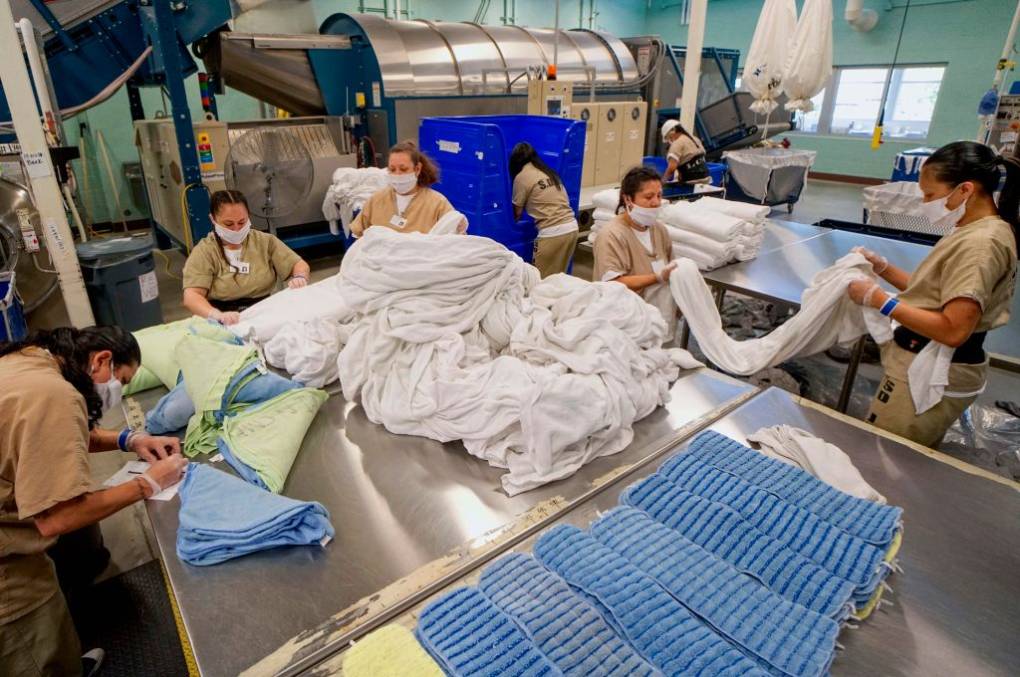
More than 1,000 incarcerated firefighters across the state would also receive a pay hike. Under the new proposal, they would earn a maximum daily rate ranging between $5.80 to $10.24, about double their current daily rate of $2.90 to $5.13 — which includes an additional $1 per hour when battling active fires.
CDCR said these wage increases would incentivize incarcerated workers to retain jobs that support their rehabilitation and would give them greater “buying power” for canteen hygiene and food items. It would also provide the state with more firefighting personnel, the agency noted.
“It is the responsibility of CDCR to ensure its inmate population is treated with dignity and has the resources and skills needed to transition back to society. This responsibility extends to fair compensation for jobs performed while incarcerated,” CDCR said in its notice of the regulation changes.
Increased compensation will also help workers meet restitution-payment requirements for crime victims and save more money for after their release, Tessa Outhyse, a CDCR spokesperson, said in an email to KQED.
The proposed regulations would additionally eliminate all unpaid work assignments, Outhyse added, although it would also reduce a majority of full-time job assignments to half-time.
“CDCR values the contributions of its incarcerated workers and is committed to its mission to prepare people in its custody to successfully return to their communities,” Outhyse said.
But some living wage advocates have slammed CDCR’s proposed pay increases, calling them grossly insufficient.
Members of the California Living Wage For All Coalition have questioned how incarcerated people will make more money, even with a wage hike, if their total hours are cut. They also argue that subminimum wages contribute to recidivism, as incarcerated people are often released into abject poverty.
“It’s shameful,” said Cox, who now works as a policy and organizing associate at Legal Services for Prisoners with Children, an Oakland-based nonprofit. “To continue the practice of exploiting individuals is just deplorable. An increase to 16 cents … I still can’t do anything with it.”
California’s pay schedule for incarcerated workers has remained largely unchanged for the last 30 years. The state’s hourly pay rate is well below the national average, which was 39 cents in 2017, according to CDCR.
Advocates argue the state has the ability to pay incarcerated workers higher wages. They point to the California Prison Industry Authority’s Joint Venture Program, which offers incarcerated workers comparable wages to those outside prison. The program boasts a 9% recidivism rate, drastically lower than for CDCR’s general population, although only 13 incarcerated workers are currently participating in it.
The Thirteenth Amendment of the U.S. Constitution forbids slavery and involuntary servitude except to punish crime. California’s law contains that same exemption, which allows CDCR to compel incarcerated people to work, regardless of the wages.
Voters in several states, including Oregon and Alabama, recently approved measures removing involuntary servitude from their constitutions. However, a proposed constitutional amendment in California that would have prohibited all forms of involuntary servitude died in the state Legislature last year.
Additionally, a bill to require CDCR to adopt a five-year plan to increase incarcerated workers’ wages was vetoed by Gov. Gavin Newsom last year because of its fiscal impact, estimated at more than $400 million per year.
Newsom argued that with lower-than-expected revenues, the state must prioritize existing obligations and priorities, such as education and health care.
This post was originally published on this site be sure to check out more of their content.








